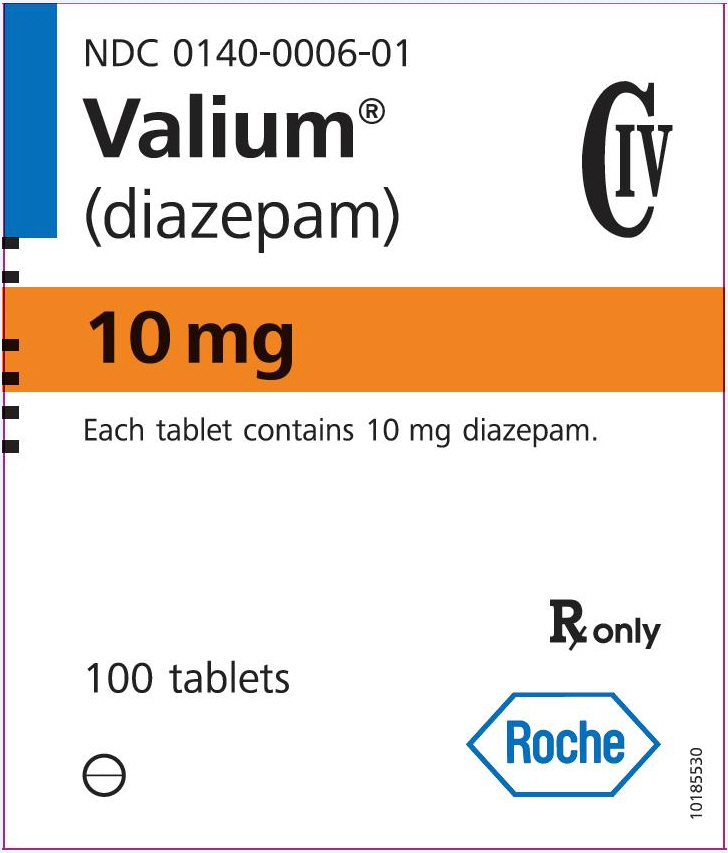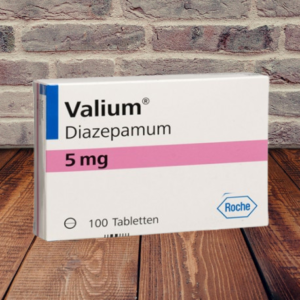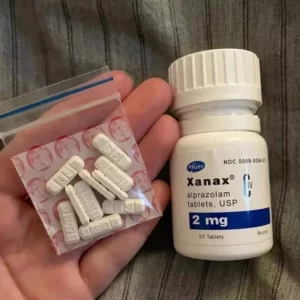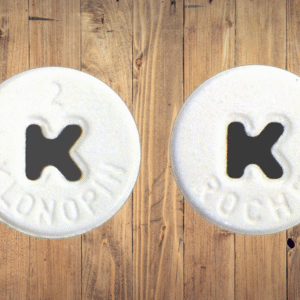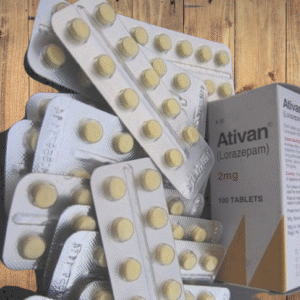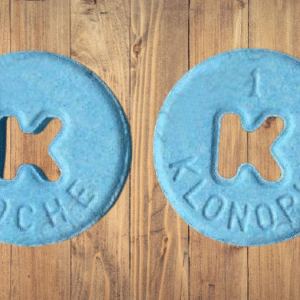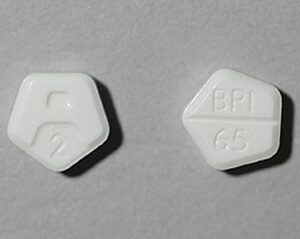Valium 10 mg For Sale
Indication
- The preparation is a drug against anxiety and tension from the group of benzodiazepines.
- The drug is applied
- for the symptomatic treatment of acute and chronic states of tension, excitement, and anxiety.
- Using the preparation to treat sleep difficulties caused by anxiety, tension, and excitement is only justifiable if the diazepam effects are wanted at the same time throughout the day.
- A notice:
- Not all states of stress, excitement, and anxiety necessitate the use of drugs. They are frequently manifestations of physical or mental diseases and can be altered by other interventions or treatment of the underlying ailment.
- for sedation and preparation (premedication) prior to surgical and diagnostic procedures or subsequently (postoperative medication).
- to treat diseases characterized by excessive muscular tension (increased muscle tone).
- for the symptomatic treatment of acute and chronic states of tension, excitement, and anxiety.
Contraindication
- The medicine must not be taken
- if you are allergic to diazepam, other benzodiazepines such as Xanax or any of the other ingredients of this medicine
- if you have ever been dependent on alcohol, drugs, or medicines
- in acute poisoning with alcohol, sleeping pills, and painkillers or with drugs for the treatment of mental illnesses (neuroleptics, antidepressants, lithium preparations)
- in severe, pathological muscle weakness (myasthenia gravis)
- with severe respiratory impairment
- if you stop breathing for a short time during sleep (sleep apnea syndrome)
- in case of severe liver damage, e.g. B. Jaundice with bile stasis (cholestatic jaundice)
- in newborns and infants under 6 months
Dosage of Diazepam 10 mg tablets
- Always take this medicine exactly as your doctor has told you. Check with your doctor or pharmacist if you are not sure.
- The dosage depends on the individual reaction situation, age and weight of the patient as well as the type and severity of the clinical picture. The principle here is to keep the dose as low and the duration of treatment as short as possible.
- The recommended dose is:
- Stress, agitation, and anxiety states requiring treatment
- treatment outside the hospital
- Adults and adolescents over 14 years of age take 1/2 tablet (equivalent to 5 mg of diazepam per day) once a day at the beginning of treatment. If the desired effects cannot be achieved with this dosage, the dose can be increased by the doctor to 1/2 tablet twice a day or 1 tablet once a day (equivalent to 10 mg of diazepam per day). Higher doses are only necessary in rare cases (e.g. psychiatric and neurological diseases) and are usually only given in hospitals.
- Inpatient treatment
- In severe states of tension, excitement, anxiety, and restlessness, the dose can be increased step by step to 1 tablet 3 to 6 times a day (equivalent to 30 – 60 mg diazepam per day).
- treatment outside the hospital
- Treatment of conditions with increased muscle tension
- At the beginning of treatment, take 1/2 tablet (equivalent to 10 – 20 mg diazepam per day) 2 to 4 times a day.
- To continue the treatment, 1 tablet once or twice a day is sufficient (equivalent to 5 – 10 mg of diazepam per day).
- For calming down and preparation for operations in anesthesiology and surgery or afterward (pre-medication/post-operative medication)
- On the eve of the operation
- Adults receive 1 – 2 tablets (equivalent to 10 – 20 mg diazepam).
- After the operation
- Adults receive 1/2 – 1 tablet (corresponding to 5 – 10 mg diazepam), if necessary a repetition is possible.
- On the eve of the operation
- Stress, agitation, and anxiety states requiring treatment
- Special patient groups
- Elderly or weakened patients and patients with organic brain changes, circulatory and respiratory weaknesses, and impaired liver or kidney function, as well as children over 3 years and adolescents up to 14 years of age usually receive half of the daily dosage given above, i.e. initially 1/4 tablet up to a maximum of 1 /2 tablets per day (equivalent to 2.5 – 5 mg diazepam). Dosing forms that can be dosed at lower doses are available for this if necessary.
- duration of use
- The doctor decides how long to take it depending on the type and severity of the clinical picture.
- In the case of acute states of tension, excitement, and anxiety, you should limit the intake of the drug to single doses or a few days.
- In chronic states of tension, excitement, and anxiety, the duration of intake depends on the course. After 2 weeks of daily intake, the doctor should clarify by gradually reducing the dose whether further treatment with the preparation is indicated. However, you should not use the drug for longer than 4 weeks even if you suffer from chronic tension, excitement, and anxiety.
- In the case of prolonged use (longer than 1 week), the dose should be gradually reduced when the preparation is discontinued. You must expect the occurrence of possible discontinuation phenomena (see category “Notes to patients”).
- In preparation for surgical or diagnostic interventions, as well as for the treatment of conditions with increased muscle tension, the drug is generally used for short periods.
- Please talk to your doctor or pharmacist if you have the impression that the effect of the medicine is too strong or too weak.
- If you take more than you should
- In the event of an overdose or poisoning with diazepam, a doctor should always be consulted immediately. Any assessment of poisoning should consider the presence of multiple poisoning due to the possible ingestion/application of multiple drugs.
- Overdose symptoms are aggravated under the influence of alcohol and other brain depressants.
- Symptoms of overdose and necessary measures
- Symptoms of mild overdose can e.g. B. confusion, drowsiness, gait and movement disorders, slurred speech, drop in blood pressure, and muscle weakness. If such signs of illness appear, a doctor must be informed immediately, who will decide on the degree of severity and any further measures that may be necessary.
- In cases of severe poisoning, there can be a central reduction in cardiovascular and respiratory functions with a blue-red discoloration of the skin and mucous membranes, unconsciousness, and even respiratory or cardiac arrest. In such cases, intensive monitoring is necessary!
- High levels of excitement can occur in the decay phase.
- If you forget to take a dose
- Do not take a double dose to make up for a forgotten dose.
- Take the prescribed dose at the next scheduled time.
- If you stop taking it
- If you want to interrupt the treatment, discuss this with your doctor beforehand. Do not stop the drug treatment on your own without medical advice. This can jeopardize the success of the therapy.
- After about 2-4 days, abruptly discontinuing the medicine after lengthy daily use can cause sleeplessness and excessive dreaming. Anxiety, anxiety, excitement, and inner restlessness might all resurface.
Trembling and sweating are common manifestations, which can progress to life-threatening somatic (e.g., seizures) and mental reactions such as symptomatic psychoses (e.g. withdrawal delirium). As a result, therapy should be discontinued gradually by lowering the dose.
- If you have any further questions about the use of the medicine, ask your doctor or pharmacist.
Pregnancy
- If you are pregnant or breastfeeding, think you may be pregnant, or are planning to have a baby, ask your doctor for advice before taking this medicine.
- pregnancy
- During pregnancy, you should only use the drug in exceptional cases for compelling reasons.
- If you become pregnant or think you may be pregnant while taking this product, please tell your doctor immediately.
- Long-term use of the drug during pregnancy can lead to withdrawal symptoms in the newborn. The administration of larger doses before or during birth can cause the infant to have a reduced body temperature, reduced blood pressure, depressed breathing, reduced muscle tension, and difficulty drinking (so-called “floppy infant syndrome”).
- lactation
- You should not use the drug while breastfeeding, since diazepam, the active ingredient in the preparation, and its breakdown products are excreted in breast milk. If treatment is unavoidable, breastfeeding should be discontinued.
Interactions with Valium 10 mg tablets
- Taking with other medicines
- Tell your doctor or pharmacist if you are taking/using, have recently taken/used, or might take/use any other medicines.
- When used with the following medicines, there may be a mutual reinforcement of the effect and possibly an increase in side effects:
- sleeping pills, sedatives, painkillers, and anesthetics
- Medicines for the treatment of mental disorders (neuroleptics, antidepressants, lithium preparations)
- Medicines used to treat epileptic seizures
- anti-anxiety drugs (anxiolytics)
- certain medicines for allergies (sedating antihistamines)
- Medicines used to treat a certain form of narcolepsy (sodium oxybate)
- certain medicines used to treat HIV (HIV protease inhibitors)
- When used with the following medicines, the effect of this preparation can be prolonged and increased:
- cimetidine or omeprazole (medicines used to treat
e.g. stomach ulcers) - disulfiram (a medicine used to treat alcohol withdrawal)
- ketoconazole (a medicine used to treat fungal infections)
- fluvoxamine and fluoxetine (medicines used to treat depression)
- cimetidine or omeprazole (medicines used to treat
- The preparation can increase the effect and possibly the side effects of the following medicines:
- Painkillers of the opiate type (the mood-elevating effect can be increased and thus the development of dependence accelerated)
- Medicines that reduce muscle tension (muscle relaxants) (especially in older patients and at higher doses, there may be an increased risk of falling)
- theophylline (a medicine used to treat e.g. asthma)
- In low doses, theophylline counteracts the sedation caused by the drug.
- levodopa (a medicine used to treat Parkinson’s disease)
- The medicinal oil can inhibit the effect of levodopa.
- phenytoin and phenobarbital (medicines used to treat seizures)
- In rare cases, the preparation can inhibit the breakdown of phenytoin in the body and increase its effect. Phenobarbital and phenytoin can accelerate the breakdown of the preparation.
- Other medicines
- In patients who are on long-term treatment with other medicines, e.g. B. certain medicines to treat high blood pressure (centrally acting antihypertensives, beta-receptor blockers), anticoagulants and medicines to strengthen the heart (anticoagulants, cardioactive glycosides), the nature and extent of interactions are unpredictable. Therefore, special caution is required when taking the preparation at the same time, especially at the beginning of treatment. Tell your treating doctor if you receive such long-term treatments.
- Concomitant use of the medicine and opioids (strong painkillers, medicines for substitution therapy, and some cough medicines) increases the risk of drowsiness, difficulty breathing (respiratory depression), coma and can be life-threatening. For this reason, concomitant use should only be considered when there are no other treatment options.
- However, if your doctor prescribes the medicine together with opioids, the dose and duration of the concomitant treatment should be limited by your doctor.
- Please tell your doctor about all opioid medicines such as OxyContin you are taking and follow your doctor’s dosage recommendations closely. It might be helpful to inform friends or relatives to watch out for the above signs and symptoms. Contact your doctor if you experience such symptoms.
- The excretion of diazepam can be accelerated in smokers.
- Due to the slow elimination of diazepam from the body, you must still be aware of possible interactions even after stopping treatment with the drug.
- Consumed with alcohol
- Avoid consuming alcohol during treatment with the drug, as alcohol changes and enhances the effect of the drug in an unpredictable manner.

